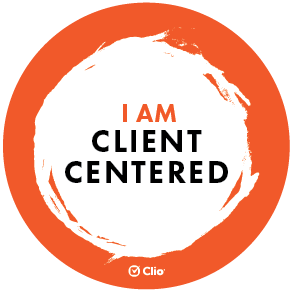Being a musician is a business.
One way to earn money as a musician is through the support of a record label, including from recording funds, distribution and promotion.
Luke Martin of Capital Rehearsal Studios and I wanted to bring another music business resource to Ottawa’s music community. We created “Independent Music Business” – a monthly free seminar and lecture series aiming to enrich the knowledge and expertise of artists, musicians and music service providers in the National Capital Region.
The series is taking place at Capital Rehearsal Studios (City Centre – 250 City Center Ave Unit #202) and the other series presenting partner is the Ottawa Music Industry Coalition – a not-for-profit, membership-based organization dedicated to growing our city’s music industry for the benefit of its artists, businesses, and the city as a whole.
At the first session, on March 12, 2016, I gave a presentation about record label agreements.
We discussed whether or not you need a record label in our DIY (do-it-yourself) music culture where technology and consumer habits have changed the game. However, if you have a record label interested to support you, it’s good to know what they’re proposing, to help you make an informed decision. Before signing, it’s also key to do your due diligence and ensure they’re the right partner for you.
Be the first to read new articles, industry news, and more. Sign up to our newsletter today!
Join Our Community
We discussed a typical recording agreement’s key terms, and strategies to protect you and increase the likelihood of keeping more of the money generated from your music.
Here are the highlights of three concepts discussed:
Master Recording License
- We discussed the difference between giving the label an exclusive license to use the master recordings of your music in a territory (ex: Canada) over a certain period of time (ex: 10 years after your final deliverable) compared to an assignment of all rights including your copyright in the music.
Advances
- A key reason to work with a record label is that they believe enough in you, and their ability to sell your music, that they give you money up front to record music. The funds are in the form of an advance against money they will generate from selling your music.
- Advances are non-returnable but recoupable against future sales. As the advance is non-returnable, if the label gives you an advance, and the album doesn’t do well, you aren’t required to pay the advance back to the label. The label is taking the risk on you. As the advance is recoupable, if the advance is $15,000, the first $15,000 that would otherwise be paid to you (which is not the first $15,000 generated from sales!), is kept by the label to reimburse them for the advance. We’ll discuss the label’s fees, expenses and general deductions (foreign sales, free goods, etc.) in a future blog.
- When you go to a label with an EP or full length album already recorded, depending on your delivery commitment to the label and the amount of the advance, much of the funds received as an advance will likely be needed to cover existing bills from the production of your existing album.
The Initial Term and Option Periods
- The label will initially want you to commit to giving them the exclusive rights to sell a minimum amount of music (perhaps the album you already recorded) and other recordings created during an initial period of time. That initial period will likely last until a certain amount of time has passed (such as 12 months) after the label has started to commercially release the music you delivered.
- The label will also likely want you to provide them with the exclusive rights to sell more of your music after the initial term ends. This is structured by the label having the opportunity to extend your commitment to them by a number of “option periods”. Once you have entered into an agreement including option periods, it’s the label’s decision – not yours – regarding whether the relationship will extend beyond the initial term into each option period. During each option, you will be required to deliver the music created during the option period, which at minimum must be a pre-determined amount of music, such as one album of at least 10 songs, consisting of at least 30 minutes.
- The advance for the initial term will be a specific amount of money. If the label wants to exercise an option, they should also need to pay you an advance. The amount of each option’s advance is generally based on a formula, which takes into account how well the music from the previous term is doing financially. However, to protect yourself, at the very least there should be a minimum dollar value (“the floor”) that the label will be required to provide you as an advance for each option. Also to be negotiated is when the option fees need to be paid, which for example might be 50% upon the commencement of the option period and 50% upon delivery of the option period’s album.
We also discussed the following topics, which I’ll cover in greater detail in future blogs.
- Grant of Rights: What rights are reasonable for you to provide the label and what rights should you not give?
- Royalties: How are royalties calculated? What is there to know about “net profit” definitions? What’s SRLP (“suggested retail list price”) and PPD (“published price to dealers”)?
- Mechanical Rights: What are these rights? How does this relate to the CMRRA (Canadian Musical Reproduction Rights Agency)? What’s a controlled composition?
- Release and Marketing: What’s the label committing to do to sell the music?
- Accounting and Audit Rights: When will you get paid and what can you do to help protect yourself if you aren’t paid correctly or on time?
- Representations and Warranties: What does this cover and what’s reasonable?
- Breaching the Agreement: What if someone (you or the label) doesn’t fulfill their obligations?
- Changing the Terms: Can the agreement be renegotiated?
We briefly discussed FACTOR (who recently revamped www.factor.ca). They provide financial assistance to artists, among others, and are launching a new program called Artist Development on April 1, 2016 with the first application deadline on May 26, 2016.
I also shared some resources from Canadian Musician Radio to the CD Baby DIY Musician Podcast, and promoted other events that provide music business seminars including Megaphono, Artists’ Legal Services Ottawa, Arboretum Festival and Ottawa International Music Conference.
The next Independent Music Business series session is the Artist Manager Bootcamp which is taking place on Saturday, April 9 (9am-6pm) and Sunday, April 10 (9am-3pm). We’re partnering with Canada’s Music Incubator for this session.
The Artist Managers Bootcamp is based on Canada’s Music Incubator’s eight-week Artist Manager professional development program and is designed to develop the skills and advance the careers of active artist managers, self-managed artists, talent managers and transitioning professionals in music or the cultural industries.
While admission is free, unlike other sessions, as there is very limited space, people need to apply in order to participate. The deadline to apply is March 27, 2016 at midnight. To apply, click here – http://www.canadasmusicincubator.com/ottawa-artist-manager-bootcamp/
To stay connected about the Independent Music Business series, including May 2016’s session (topic to be announced shortly), events will be promoted on Facebook, including on the Edwards PC, Creative Law and Capital Rehearsal Studios Facebook pages.
Photo credit: Ming Wu
—
Edwards PC, Creative Law is a boutique law firm provides legal services to Music, Film, Animation, TV, Digital Media, Game, Software and Publishing industry clients. For more information and blogs, please visit www.edwardslaw.ca
Regarding music law, Byron Pascoe works with musicians and music companies to assist with record label agreements, publishing contracts, distribution deals, producer agreements, band agreements, etc.
© 2018 Edwards PC
* This blog is for general informational purposes only and is not to be construed as legal advice. Please contact Edwards PC, Creative Law or another lawyer, if you wish to apply these concepts to your specific circumstances.


